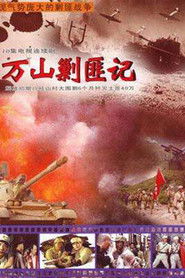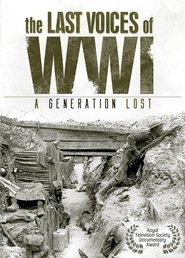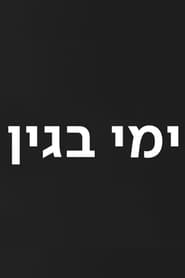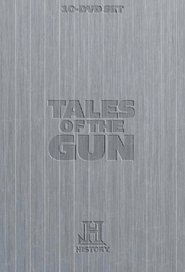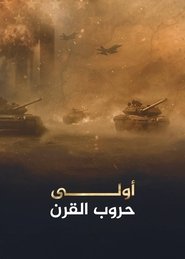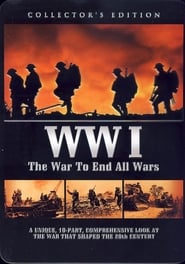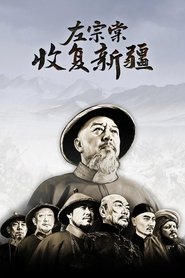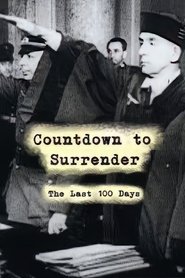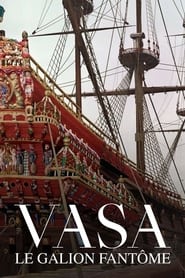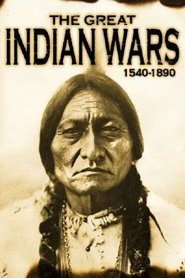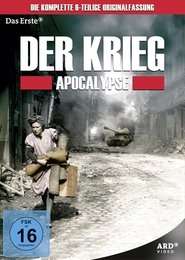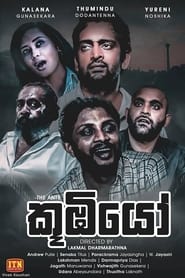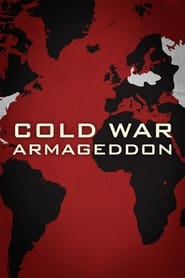Popular War Politics TV Series - Page 119
-
大围剿
1999
大围剿
1999
-
Just Want to Pamper You
2021
It tells the story of Li Qing Tong, a brave female general who faithfully defended Great Song Kingdom, after her father, the late General, died. However, her life changes forever when she meets Si You Yu, a young talented doctor who approaches Li Qing Tong purposefully, but later fell in love with her. -
Mezz'ora in più
2005
-
The Last Voices of WWI - A Generation Lost
2011
Horrors of World War I are relived as last survivors tell their tales in this new series. A unique and harrowing six-part documentary series featuring testimonials from more than 100 WWI veterans. This culmination of interviews captured over the last 15 years has been put together in one series for the first time, along with historic newsreel footage and dramatic reconstructions. Winner of a Royal Television Society Documentary Award (2009), this breathtaking series is praised for providing a unique historical record of a lost generation. -
رجال الفرقان
2014
-
Begin
2019
Begin
2019
The three episodes of this limited series deal with three events in the center of Prime Minister Begin: The peace agreement with Egypt, changes in the economic-social field, and the Lebanon war, during which he declared that he could no longer go on and retired. At the same time, he created the Devprived Alliance. Under this alliance, the ultra-Orthodox parties joined the coalition, the NRP received important ministries, including the ministry of education, and the Mizrahi-Traditional peripherents entered the corridors of the government. -
Warbirds of World War II
1996
From the Battle of Britain to the Dresden bombings, some of the most intense combat of World War II occurred in the airspaces over Europe. This multi-volume box set offers a comprehensive account of the aircraft that helped bring the Allies to victory, including the B-17 Flying Fortress, the B-24 Liberator, the P-51 Mustang, and many more. -
Tales of the Gun
1998
Tales of the Gun
1998
Tales of the Gun was a television series that broadcast on the History Channel for one season in 1998. It featured the history of firearms. The usual episode format included interviews of historians and people who used the featured weapon, explanations of how the weapons were made, and demonstrations on a shooting range. The series narrator for the American version was Thom Pinto, a veteran voice actor. -
أولى حروب القرن
2002
أولى حروب القرن
2002
-
WWI: The War to End All Wars
2008
WWI: The War To End All Wars is a unique, 10-part, comprehensive look at the war that shaped the 20th Century. Through rare, actual battle footage and rare veteran interviews, The War To End All Wars takes you from the assassination of the Austrian Arch Duke in 1914, to the final desperate battles of 1918. Unique and stunning, you will go-over-the-top on the Western Front and witness the carnage in Russia. You'll take to the skies in the world's first air war and ride with the legendary Lawrence of Arabia. This is more than a historical or military account of WWI, it is a riveting and personal account of a defining moment in world history. Never before in the history of the world had so many countries fought on so many far-flung battlefields. Never had so many soldiers lost their lives. Never had there been such an unending hell-on-earth. Never has there b such a remarkable look at 'The War to End All Wars'. -
左宗棠收复新疆
2025
左宗棠收复新疆
2025
-
Vasa: The Ghost Warship
2023
star 8The Vasa was built for war but also to impress the enemy and display power. However, she sank on her maiden voyage, taking about thirty people with her to the depths. Many were rescued from the water by small boats that were in Stockholm’s ström to witness the proud vessel. Today, 400 years later, researchers study this unique time capsule from the early 17th century. How powerful were Vasa’s 64 cannons? Who do the countless, colorful sculptures on the ship actually depict? And the big question: what was the reason the ship sank? -
The Great Indian Wars
2009
The year 1540 was a crucial turning point in American history. The Great Indian Wars were incited by Francisco Vazquez de Coronado when his expedition to the Great Plains launched the inevitable 350-year struggle between the white man and the American Indians. From that point forward, the series of battles between the military and civilian forces of the United States and the native American Indians began when blood was shed and ultimately tens of thousands of lives were lost on both sides. The Battle of Tippicanoe, the Battle of Horseshoe Band, all three Seminole Wars and the Battle of Little Big Horn were some of the most important conflicts that led up to the last massacre, the Battle of Wounded Knee, where America's landscape would be forever changed! -
The Ants
2017
The Ants
2017
35 year old bachelor Jehan and his partner in crime Priyantha try to exploit the loopholes in the law in order to make a living. -
Tyrant: The Rise of Adolf Hitler
2023
A fresh examination of events between September '38 and March '39. Hitler was intent on invading Czechoslovakia, but even then the tyrant was already looking to his next goal. -
M.A.D. World
2015
M.A.D. World
2015
-
Starea Impostorilor
2023
Starea Impostorilor
2023
Romania is drifting further away from the path to a better future, a future promised over 33 years ago. Now, more than ever, it's crucial for us, the citizens, to unite in defense of democracy. In Starea Impostorilor, activist Valeriu Nicolae takes over the Starea Nației platform to expose and discuss in detail the systemic issues and political impostors undermining the nation's progress. With sharp analysis and compelling insight, this show shines a light on the realities we must confront. Stay tuned, dear viewers! -
The Hill Sunday with Chris Stirewalt
2024
Weekly NewsNation talk series featuring discussion of current events in American politics.
 Netflix
Netflix
 Amazon Prime Video
Amazon Prime Video
 Apple iTunes
Apple iTunes
 Apple TV Plus
Apple TV Plus
 Disney Plus
Disney Plus
 Google Play Movies
Google Play Movies
 Paramount Plus
Paramount Plus
 Hulu
Hulu
 HBO Max
HBO Max
 YouTube
YouTube
 fuboTV
fuboTV
 Peacock
Peacock
 Peacock Premium
Peacock Premium
 Amazon Video
Amazon Video
 The Roku Channel
The Roku Channel
 AMC+
AMC+
 Kocowa
Kocowa
 Hoopla
Hoopla
 The CW
The CW
 Vudu
Vudu
 Starz
Starz
 Showtime
Showtime
 PBS
PBS
 Pantaflix
Pantaflix
 FXNow
FXNow
 Tubi TV
Tubi TV
 Kanopy
Kanopy
 Comedy Central
Comedy Central
 Crunchyroll
Crunchyroll
 Microsoft Store
Microsoft Store
 Redbox
Redbox
 Sun Nxt
Sun Nxt
 ABC
ABC
 DIRECTV
DIRECTV
 Crackle
Crackle
 Fandor
Fandor
 Plex
Plex
